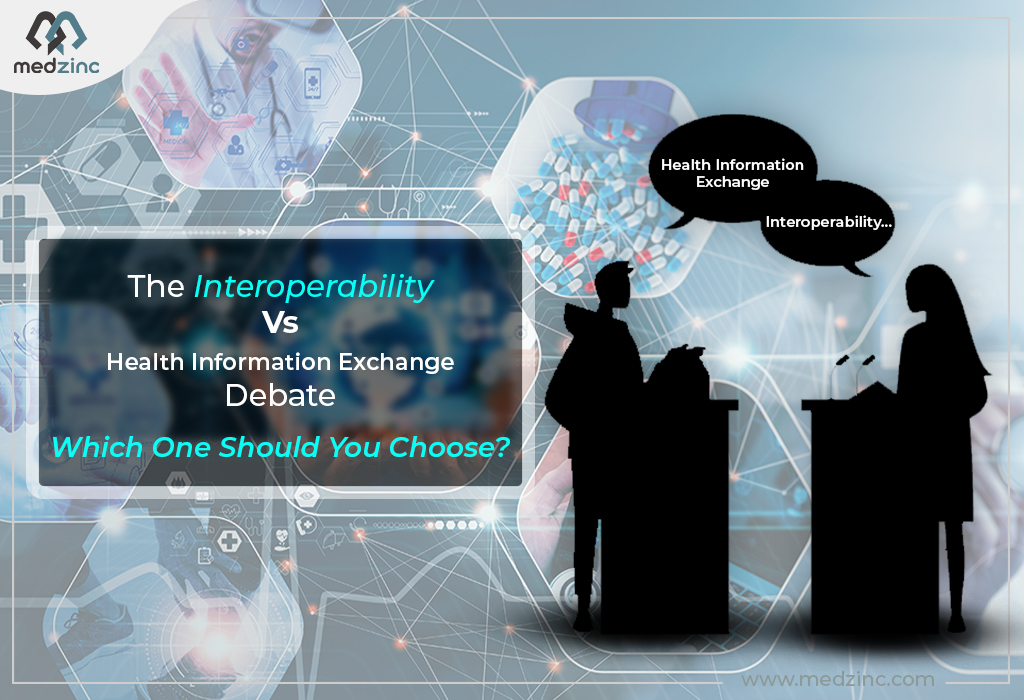
Interoperability vs Health Information Exchange Debate: Which One Should You Choose?
Beyond adoption and implementation, the healthcare industry is facing another major challenge. The Interoperability vs Health Information exchange (HIE) debate raises a question: are we moving in the right direction? Although both Interoperability & HIE initiatives are playing an important role in transforming healthcare by improving patient care and data exchange. Yet, it looks like these two initiatives don’t complement each other , but rather compete with each other. Interoperability vs Health Information Exchanges: Which One Should You Choose?
What is Health Information Exchange?
Health Information Exchange (HIE) is the process by which electronic health records exchange information between healthcare providers. This exchange of information takes place either through a formalised exchange or through informal sharing. HIE can facilitate the timely exchange of medical information between health care providers, patients, and other stakeholders involved in an individual’s care. With proper implementation of HIE , it can help to improve the quality of patient care and reduce unnecessary costs for both individuals and the healthcare system as a whole. Yet, because HIE can be difficult to implement & maintain. There are some important aspects that need an eye over before its implementation. The main goal of HIA is to improve communication between providers so that patients receive the care they need in a timely manner. Health Information exchange should also be designed to meet the specific needs of each organisation, including privacy concerns and security consideration.
What is Interoperability?
Interoperability is the ability of two or more systems to share & exchange information with each other. There are three main categories.
- Communication
- Integration
- Accessibility
Where communication refers to the ability of a system to communicate with each other. Integration refers to the ability of systems to work together. And accessibility refers to the ability of two or more systems to be used by different users, groups, or organisations. In order for two systems to be interoperable, they need to have the same communication protocols, share data and integration services, and be accessible by all users.There are many benefits to being interoperable, including reduced operational, increased efficiency, and much more.
Interoperability vs Health Information Exchanges: Which One Should You Choose?
The major difference between Interoperability vs Health Information exchange is that, in order for a system to be interoperable it data needs to be both exchanged and used. On the other hand, HIE seamlessly states the exchange of data from one to another without the significant use of it. For instance if an EMR system sends data in French to another EMR system which works in English, then that data is in no use for that system. This is so as both are not interoperable & have different sets of standards. But, on the other hand if both of them are interoperable then both of their data exchanges will be seamlessly used. Now, the question arises which one to choose. There are several factors to consider when deciding whether interoperability or an HIE is right for your organisation. One key consideration is the level of control you want over your data. With interoperability, you maintain control over your data and decide who can access it. Whereas, with HIE, you may have less control over who can access your data. Another factor to consider is the type of data you need to share. If you only need to share simple demographic information that only needs to be exchange without any usage, then HIE may be sufficient. However, if you need to share complex clinical data or even simple information that requires exchange and usage, then interoperability may be a better option. Finally, you should consider the cost of implementing either solution. Interoperability generally requires.
Related Post
No results.